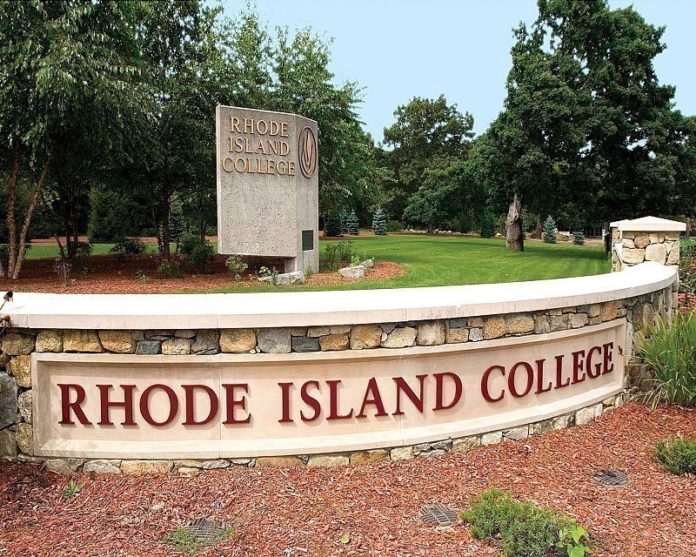
PROVIDENCE – Developing new strategies to recruit new students within Rhode Island, increasing student retention and maximizing federal grants focusing on increasing access for students are some of the potential opportunities that global firm Alvarez & Marsal Public Sector Services LLC outlined in its report on how Rhode Island College can improve its overall operations and financial situation.
The R.I. Office of the Postsecondary Commissioner hired A&M, which has Boston offices, Dec. 16, 2020, to conduct a program review and operational review, to analyze enrollment strategy, federal grant optimization and the college’s COVID-19 response of the state college that has seen underperforming operations, especially during the pandemic. The contract was supposed to last 11 weeks through March 1 at the cost of $76,000 per week, but was canceled after four weeks ending Jan. 14, yet still cost $304,000 for the four weeks of work.
RIC has been hit hard by the pandemic, running a $10 million budget gap and having to lay off some employees before the start of the academic year.
The abbreviated report was compiled after A&M conducted more than 50 interviews across RIC, the R.I. Council on Postsecondary Education and with external stakeholders to seek data and develop recommendations. A&M’s report can be read in full here.
A&M’s report confirmed that enrollment, which saw a 12% decline this year due to the pandemic this year, has been among the trouble spots at RIC. Per the report, RIC’s enrollment has been “steadily declining” from 7,466 students in the 2015 fall semester to 5,998 this past fall.
The pandemic has also hampered some of RIC’s operations. RIC only used 30% of its dorm capacity and saw its dining operations decline by 58%, “all of which accelerate the structural and operational deficits and require immediate action,” the report said.
In order to increase student retention, A&M suggests that the college centralize some aspects of student advising and identify “the most common reasons that student choose to withdraw from RIC, while working to mitigate those issues.” A&M also recommended RIC evaluate opportunities to increase the efficiency and effectiveness of continuing academic programs. Such areas A&M touched on are student faculty loads, course scheduling practices, organization of programs within schools and alignment of programs to the Rhode Island labor market.
A&M also recommends RIC to develop strategies to safely reopen its campus beyond the pandemic, including having a comprehensive testing strategy and using federal health guidelines.
A&M recommends that both the postsecondary council and RIC leadership leverage these observations immediately to develop recommendations that can be implemented for the 2021-2022 school year. It is currently unclear how RIC will respond to the report and its findings, and what the college plans to prioritize to help it recover. RIC officials did not immediately respond Friday to a request seeking comment.
RIC spokesperson John Taraborelli said Friday in a statement that the report brings renewed attention to some of the issues that the college had been addressing with limited resources for the past few years. While he did not specify what opportunities RIC will prioritize first, Taraborelli said RIC is “pursuing more robust recruitment and enrollment management strategies to increase the number of students attending. We are also undertaking an extensive program review to ensure that our academic offerings are aligned with the state’s workforce needs and the interests of prospective students.”
“We will continue to work with the council [on postsecondary education] on these matters,” Taraborelli said.
(ADDS last two paragraphs with Taraborelli comment.)
James Bessette is the PBN special projects editor, and also covers the nonprofit and education sectors. You may reach him at Bessette@PBN.com. You may also follow him on Twitter at @James_Bessette.













Frankly reports of this type are band aids and do a disservice to RIC by totally ignoring the most pervasive problem the school faces and that has been the poor funding over many years. The stats don’t lie Rhode Island has ranked near the bottom of all states in funding for higher education and it has been in that position for over four decades and that is unique among all states. States periodically cut or slow funding, but only RI has done it consistently over a long period of time. You get what you pay for so the state has to wake up and fund this most important element of education.